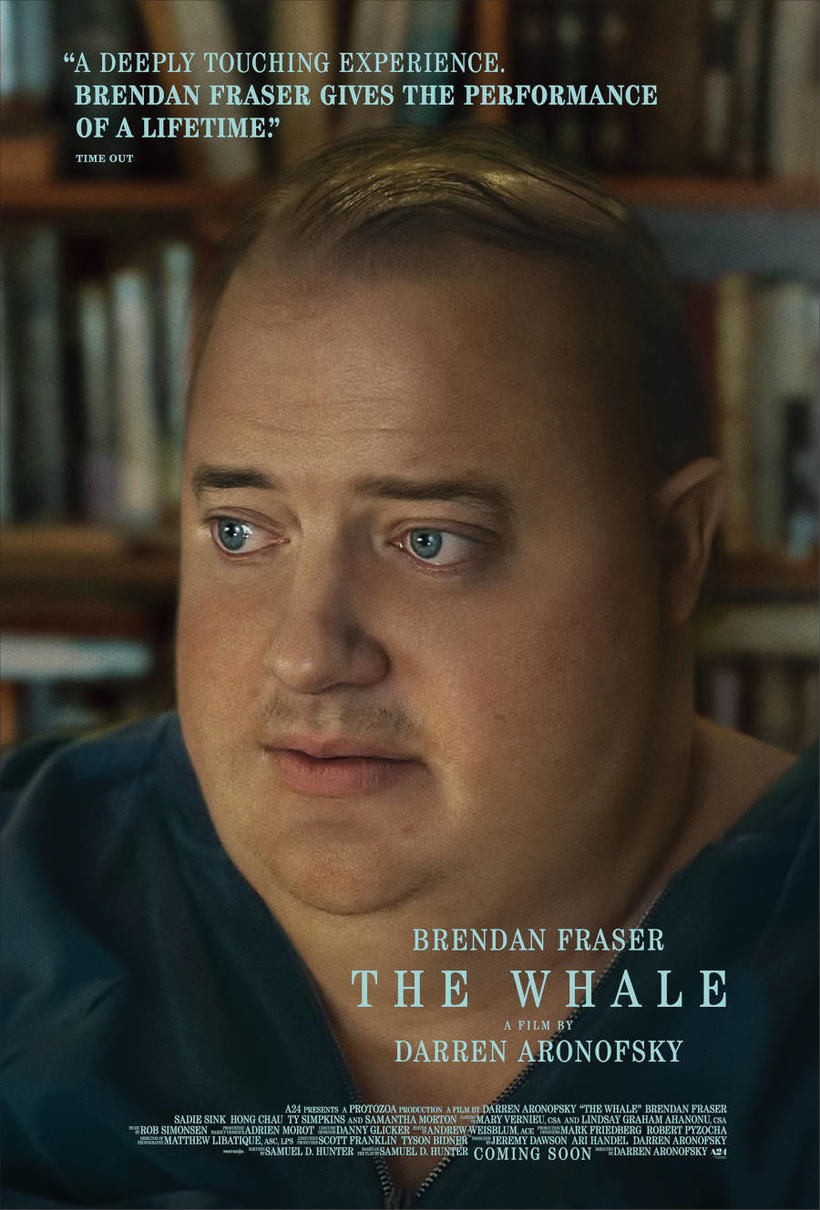"The Whale" Snapshot Review
- Vega

- Dec 26, 2022
- 4 min read
Release Date: December 9, 2022 Platform: In Theaters

As great as gorging on Santa and tinsel-led content has been, it was refreshing to make it back to the theater with the holidays dying down and take in Darren Aronofsky’s eighth film, The Whale. While the director’s Academy Award-winning Black Swan has been a mainstay among my favorite films of all time, much of his work has failed to live up to the hype his name appears to bring. This particular film, though, had me excited as the positive press surrounding lead actor Brendan Fraser’s performance molded the anticipation for a dramatic return from the once blacklisted actor. Tackling a character with health traits that are mostly found on reality shows was also promising of something fresh, as was the inclusion of Sadie Sink, who has become my favorite part of the Stranger Things franchise.
As with most of the director’s work, The Whale is a deeply personal tale that examines sexuality, religion, remorse, and loss (along with a few other encompassing aspects of the human condition) from the perspective of Charlie (Brendan Fraser), a reclusive and morbidly obese English teacher. The plot’s main narrative follows his desperate attempts to reconcile with Ellie (Sadie Sink), the teenage daughter whom he abandoned as a child, as his health is quickly deteriorating. As this dynamic is explored, other aspects of Charlie’s life are captured in his interactions with his friend Liz (Hong Chao), who is also a nurse who tends for him, and Thomas (Ty Simpkins), a religious missionary who believes he was sent to save Charlie’s soul. Other than brief appearances from two other characters, these four actors carry the entirety of the movie’s tone and pacing in their interactions with each other. From start to finish, the movie takes place in or just outside of Charlie’s apartment, leaving little impact from anything outside of the dialogue and performances, which lends itself greatly to Fraser’s absolutely riveting performance in both his delivery and body language as this confounding, yet frustrating, character. He excels in pulling the audience in and out of sympathy, anger, depression, and resentment towards him with the well-timed placement of a wheeze or a pizza-binge. It has been a while since I have experienced a performance so strongly separating the character from its actor.
Each supporting role that interacts with Charlie could be seen as the catalyst that dives into the movie’s various themes, with none being more compelling than the remorse and resentment spewed between Ellie and Charlie. As interesting and electric as Fraser and Sink’s chemistry was, there was a missing link in the telling of their story that made it fall flat towards the end. The film was too straightforward in its many observations of religion, honesty, or the truth of literature, forcing the narrative to balance three storylines, two of which were devoted far too much time. Understanding that the movie was more than just a father/daughter tale, one cannot deny that sometimes the idea for a narrative has to be superseded by its inherent strengths. A more compelling story would have had less Thomas and more Ellie, with plenty of room to still implicitly explore religion through Charlie’s recollections of time with his deceased partner. There are plenty of introspective-inducing ideas thrown on the table, with a few too many themes garnering attention, with none really being highlighted enough to be elevated above the rest.
This movie spells out its ending early on and does not bog itself down in typical drama tropes that would stray away from its sad inevitability. This is a depressing drama that does not care to offer hope and bleeds rawness into the dirtier parts of life. However, I do think Aronofsky gets in his own way and deadens the emotional climax of the film as he falls into existential showboating when finally being met with the emotional gut punch to which the story was building. This is a story you will get lost in and characters that you will develop complex feelings towards, which are important hallmarks of a great film. The movie spells everything out for its audience and does not leave much more to think about, even with its interconnecting themes of literature/Moby Dick to Charlie’s situation. Thus, it is completely emotion-driven and it does not completely deliver on that emotional investment. You are likely to find yourself with many unresolved emotions by the end with a few questions about unclear character motivations. Do not misunderstand me, though, as Fraser makes The Whale a must watch for his character work alone, along with the strong performances surrounding him. I needed a bit more story to guide the narrative’s stronger plot threads and bring a greater sense of completeness to at least one of them.
RATING: 🐋 🐋 🐋. 75 / 5
If you enjoyed this content, please follow Geeky Therapy on Facebook and Instagram to stay up to date with all posts and reviews.






Comments